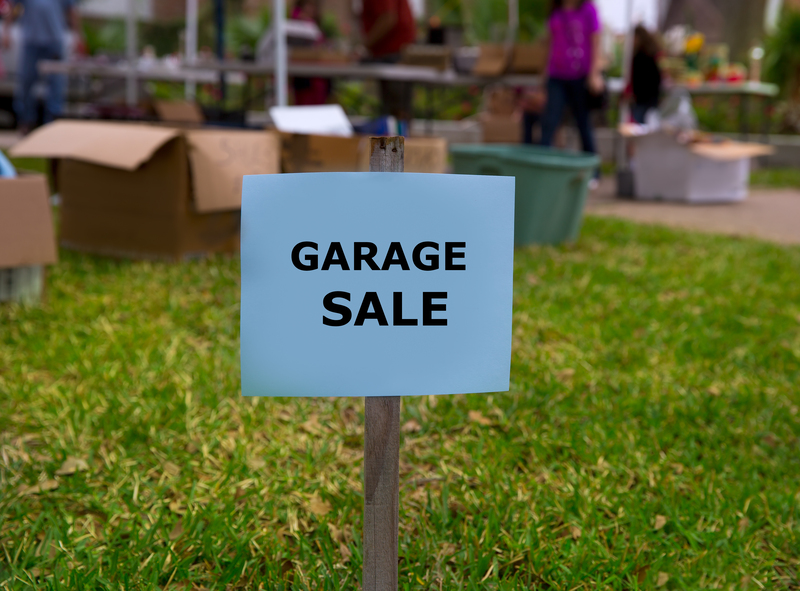Insider Advice on Cheap Bulky Waste Removal Options
Bulky waste removal can be a headache for many households and businesses. Whether you're renovating, moving, or just doing a major cleanup, getting rid of large, unwanted items such as old sofas, mattresses, appliances, or construction debris is both a logistical challenge and a cost consideration. In this comprehensive guide, you'll discover insider advice on cheap bulky waste removal options--packed with practical tips, cost-saving techniques, and important regulations you need to know.

What is Bulky Waste and Why Is Its Removal Important?
Bulky waste typically refers to items that are too large to be collected by regular curbside trash services. This could include furniture, large appliances, electronics, garden waste, and more. Proper disposal of bulky waste is important for environmental health, community cleanliness, and efficient household management.
- Prevents illegal dumping and neighborhood eyesores
- Reduces fire and safety hazards around your property
- Ensures potentially recyclable materials don't end up in landfills
Common Types of Bulky Waste
- Old furniture: sofas, beds, tables, wardrobes
- White goods: refrigerators, washing machines, dishwashers
- Electronics: TVs, computers, microwaves
- Construction debris: rubble, wood, metals
- Yard waste: branches, stumps, garden furniture
Cost Factors in Bulky Waste Removal
The cost of removing bulky waste can vary widely, depending on several factors:
- Volume and weight of the items involved
- Accessibility--are the items easy to reach and remove?
- Location--urban areas may have higher pricing than rural regions
- Local council policies--some towns offer free or subsidized bulky waste collection
- Type of items--hazardous items may incur extra fees
Understanding Your Bulky Waste Removal Options
Finding the best and most affordable method depends on your location, type of waste, and how much effort you're willing to put in. Here are the top cheap bulky waste removal options:
1. Local Council Collection Services
Most local councils offer a bulky waste collection service at discounted rates or even for free. These programs are very cost-effective and can be scheduled online or via phone.
- Pros: Often the cheapest (sometimes free), reliable, safe
- Cons: Limited number of collections per year, restricted to specific items, waiting lists
Check with your local council's website for guidelines, eligibility, and how to book a collection.
2. Recycling Centres and Tip Trips
You can often transport your own bulky waste to a civic amenity site or recycling centre. Most centres accept a wide range of large items, sometimes at no cost, especially for residents. Some even provide separate bins for electricals, metals, furniture, and garden waste.
- Pros: Cheap or free for household waste, environmentally friendly, no wait for collection
- Cons: You need a vehicle, heavy lifting required, distance might be far
3. Bulky Item Swap and Second-Hand Platforms
Did you know many of your bulky items may have value to someone else? Reuse is the most eco-friendly option. Try:
- Online classified websites (Gumtree, Craigslist, Facebook Marketplace)
- Freecycle or Freegle--give away items for free to people who collect them
- Charity shops or thrift stores--some charities collect reusable furniture and appliances
These methods can save you both money and effort; people often collect the items themselves, leaving you with a clutter-free space at zero cost!
4. Skip Bag Services
Skip bags are a more affordable alternative to hiring a full-sized skip. You can buy collapsible skip bags at hardware stores or online, fill them at your pace, and then arrange for a pickup. Prices are usually lower than traditional skip hire.
- Pros: Flexible timing, cheaper than full skips, suitable for moderate loads
- Cons: Bags have size/weight limits, not suitable for all waste types, may require booking for collection
5. Traditional Skip Hire
If you have a large volume of waste, a skip hire may be necessary. Price depends on skip size, location, and permit costs. You may share skips with neighbours to split the cost!
- Pros: Largest capacity, convenient, quick for big projects
- Cons: Most expensive, driveway or parking permit may be needed, restrictions on what can be placed in skips
6. Man with a Van Services
These are professional rubbish removal services that come to your property and remove the bulky items for you. They charge based on the amount of waste, and many now offer competitive rates.
- Pros: Quick, handles all heavy lifting, suitable for awkward/large items
- Cons: Prices vary, always check for waste carrier licenses to avoid illegal dumping
7. Community Clearance Events
Sometimes, councils or local groups organize community clean-up days. These events often offer free or discounted bulky waste collection for residents. Watch local noticeboards or council announcements for upcoming dates.
How to Save Money on Bulky Waste Disposal
- Combine loads: Pool with neighbours or friends to share collection costs.
- Disassemble items: Breaking down furniture reduces volume and may allow for cheaper disposal.
- Donate first: If items are in good condition, offer them to local charities or community groups for reuse.
- Recycle what you can: Many recycling centers accept parts of bulky waste like metal, wood, and electronics at no charge.
- Check for council vouchers: Some local authorities offer waste disposal credits or vouchers--don't miss out!
- Be organized: Booking online or well in advance often gives access to discounted rates.
Regulations and Legal Considerations
Always use a licensed waste carrier for any paid service. If you hire an unlicensed service and your rubbish is fly-tipped, you could be liable for hefty fines. Ask to see their waste carrier license and get a waste transfer note as proof.
What not to do:
- Never dump bulky waste in the street, parks, or countryside (illegal fly-tipping)
- Don't burn furniture or electricals - it's dangerous and illegal in many areas
- Do not stash hazardous materials (like fridges or chemicals) in skips unless permitted
Special Cases: Handling Hazardous or Restricted Bulky Waste Items
Some items require special handling due to hazardous content or recycling restrictions:
- Asbestos sheets or insulation materials
- Refrigerators and freezers (contain refrigerants)
- Televisions and computer monitors (contain toxic substances)
- Car batteries or tires
- Paints, solvents, and chemicals
Contact your local council or a specialized disposal firm for instructions on safe, legal, and economical disposal.
Insider Tips for Hassle-Free, Affordable Bulky Waste Removal
- Plan ahead: Book services early to avoid last-minute premium charges.
- Photograph your items: This helps get accurate quotes (especially for man-with-van services).
- Ask about discounts: Some providers offer discounts for pensioners, students, or low-income households.
- Check reviews: Read up on contractors to avoid hidden fees or unlicensed operators.
- Look for bulk days: Councils sometimes have special collection days for larger amounts of waste - use these to your advantage.

Frequently Asked Questions About Cheap Bulky Waste Removal
Is bulky waste removal ever free?
Yes! Some councils offer a certain number of free collections per year, particularly for vulnerable groups like the elderly or disabled. Check your local authority's website.
Are charitable donations an option for all items?
Most charities will only collect items in good, reusable condition. Soft furnishings may need fire safety labels, and white goods often must be working. Always check requirements before arranging collection.
How do I ensure my bulky rubbish is disposed of ethically?
Always use licensed collectors, prioritize recycling or reusing, and avoid landfill whenever possible.
Can I hire a van and take items to the tip myself?
Yes, but check whether your local recycling centre accepts van loads without a permit, as business or commercial waste may be charged differently than domestic waste.
Conclusion: The Smart Way to Save on Bulky Waste Clearance
Cheap bulky waste removal is entirely possible with a bit of research and insider advice. Use local council pickups, recycling centers, reuse platforms, and skip bag alternatives to keep costs down. Stay legal, prioritize the environment, and plan ahead for the easiest, most affordable solution to your bulky waste problem. Your wallet and the planet will thank you!
- Find out your council's policies first
- Prioritize reuse and donation to cut costs
- Recycle wherever possible
- Only use licensed removal services
- Team up with neighbours to save
When it comes to bulky waste clearance, a little knowledge goes a long way. Use the tips in this guide for hassle-free, environmentally friendly, and most importantly, cheap bulky waste disposal every time.